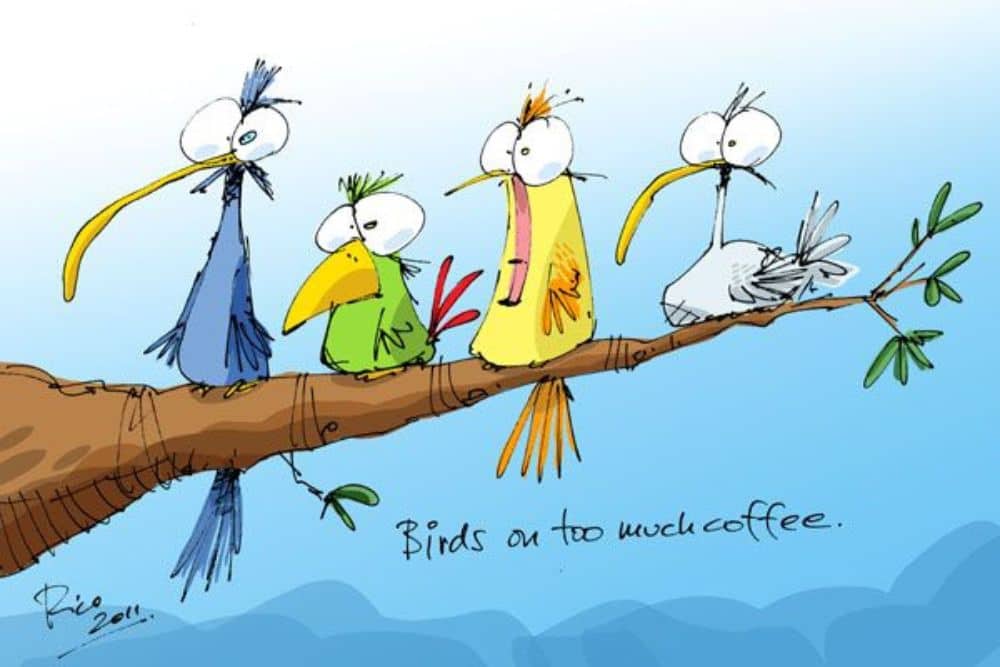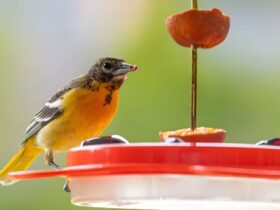Can Birds Fart are fascinating creatures, admired for their vibrant colors, graceful flights, and enchanting songs. But despite our familiarity with these feathered animals, many aspects of their biology and behavior remain a mystery. Among these lingering questions is a topic that might make you chuckle: Can birds fart?
Flatulence, or the passing of gas, is a joint bodily function in many animals, including humans. It typically results from the digestive process as bacteria break down food in the intestines, producing methane and carbon dioxide. However, when it comes to birds, the question of whether they are capable of farting is not as straightforward as it might seem.
This blog aims to provide a comprehensive answer to this curious question. We will explore birds’ anatomy, their digestive system, the science behind gas production, and compare their digestion to that of mammals. By the end of this article, you’ll have a clearer understanding of bird digestion and whether or not these avian creatures pass gas like mammals.
Understanding Digestion in Birds
To answer the question of whether can birds fart, it is crucial first to understand their digestive system. Bird anatomy differs significantly from that of mammals, and their digestion is specialized to accommodate their unique dietary needs and flight capabilities.
Can Birds Fart? The Avian Digestive System
Birds possess a highly efficient and compact digestive system that enables them to process food rapidly. A bird’s fast digestion is essential for fulfilling its high energy needs and keeping its body lightweight for flying.
1. Beak and Mouth: Birds lack teeth and don’t chew their food Instead, they use their beaks to grasp, tear, or crush food, swallowing it either whole or in small pieces.
2. Esophagus and Crop: After birds ingest food, it travels down the esophagus to the crop, a pouch in the throat that temporarily stores the food.
3. Proventriculus (Glandular Stomach): The food then enters the proventriculus, where digestive enzymes and acids begin the breakdown process.
4. Gizzard: Next, the partially digested food moves to the gizzard, a muscular organ that grinds the food into finer particles. Can Birds Fart often ingest small stones or grit to aid in this grinding process.
5 Small Intestine: In the small intestine, nutrients are absorbed into the bloodstream, while any remaining undigested material continues onward in the digestive tract.
6. Ceca: Birds have two ceca (singular: cecum), which are small pouches where additional fermentation and breakdown of fibrous material can occur, primarily in herbivorous or omnivorous species.
7. Large Intestine and Cloaca: The final stage of digestion takes place in the large intestine, which is relatively short in birds. Undigested waste is excreted through the cloaca, a multifunctional opening used for both waste elimination and reproduction. Differences Between Bird and Mammal Digestion
Sure! Here’s a rewritten version:
One of the key differences between bird and mammal digestion is that birds do not have teeth. Mammals digest their food by chewing, whereas birds use their gizzard for mechanical digestion. This fundamental difference shapes the digestive process and affects how birds produce and expel gas. Mammals have longer intestines, where extensive fermentation of food by gut bacteria occurs, producing gases like methane, carbon dioxide, and hydrogen. In contrast, birds have shorter intestines and a much faster digestive process, which affects the amount of gas produced in their digestive tract.
The Science Behind Flatulence: How Gas is Produced
Flatulence, commonly known as farting, happens when gases build up in the intestines and are released through the rectum, or cloaca in birds. In mammals, flatulence results from various sources, including:
1. Swallowed Air: A portion of the gas in the digestive tract originates from air that is swallowed during eating or drinking.
2. Bacterial Fermentation: The primary source of flatulence in mammals is the fermentation of food by gut bacteria. These microbes decompose carbohydrates, leading to the generation of byproducts such as methane, hydrogen, and carbon dioxide. The ability to pass gas mainly depends on the amount of gas produced and the structure of the digestive system. For example, herbivorous mammals like cows and horses, which rely on fermentation to digest fibrous plants, produce large amounts of gas and frequently expel it as flatulence.
Do Birds Produce Gas?

Whether birds produce gas depends on the presence of gas-producing bacteria in their digestive tract and the degree of fermentation. Although birds do have gut bacteria, the level of fermentation is significantly lower than in other animals than in mammals. This is attributed to the relatively short digestive process and the absence of specialized fermentation chambers, such as the large intestines found in mammals.
The Role of the Ceca in Birds
The ceca are small pouches situated at the connection between the small and large intestines. In certain bird species, particularly those with diets high in fibrous plant material, the ceca are more developed and involved in breaking down cellulose and other complex carbohydrates.
However, even in these species, fermentation occurs in much smaller amounts compared to herbivorous mammals. Therefore, while birds may produce some gas as a byproduct of digestion, it is typically in tiny quantities and insufficient to cause noticeable flatulence.
Expelling Gas: Do Birds Fart?
Based on what we know about bird digestion and gas production, the conclusion is that while birds may produce small amounts of gas, they are unlikely to fart in the same way that mammals do. The short digestive process and the limited fermentation in the ceca mean that birds do not accumulate large amounts of gas in their intestines. As a result, no significant gas build-up would need to be expelled through the cloaca.
Furthermore, there is no scientific evidence or documented observations of birds passing gas in the form of audible or olfactory flatulence. This absence of evidence supports the idea that while small amounts of gas may be produced, it is not released in the manner of a mammalian fart.
Anecdotal Evidence and Myths
The idea of birds farting has gained traction due to anecdotal reports and humorous myths. For example, Can Birds Fart owners sometimes report hearing noises or seeing their pet birds exhibit behaviors that resemble farting. However, these noises are often due to other bodily functions, such as vocalizations, wing movements, or digestive sounds unrelated to flatulence.
Additionally, Can Birds Fart expel air through their vocal organs (the syrinx) to produce calls, which untrained observers sometimes mistake for flatulence.
Can Gas Accumulation Be a Problem for Birds?
While birds are not known to fart, gas accumulation can still pose health risks for them. Can Birds Fart experience gas build-up due to certain medical conditions, infections, or dietary imbalances. If a bird ingests spoiled or fermentable foods, such as moldy seeds or certain types of fruits, this can lead to gastrointestinal issues and gas formation.
In such cases, the Can Birds Fart may exhibit symptoms like abdominal distention, lethargy, loss of appetite, or difficulty breathing. Gas accumulation in birds requires veterinary attention, as it can indicate a more serious underlying issue.
Fun Facts About Bird Digestion

While birds may not fart, there are many fascinating aspects of their digestive systems worth exploring:
1. Efficient Digestion for Flight: Birds’ rapid digestion helps them maintain a lightweight body, which is essential for efficient flight. The fast processing of food means that any gas produced is quickly expelled through the cloaca without causing a build-up.
2. Gizzard and Grit: Birds use their gizzards to grind food, often swallowing small stones or grit to aid in this process. The gizzard’s grinding action enables them to break down food without chewing.
3. Crop Storage: Many birds have crops that enable them to store food temporarily, which they can later digest more leisurely. This adaptation benefits birds that need to feed quickly and then retreat to a safe location.
Conclusion:
In conclusion, while birds have a digestive system that differs significantly from that of mammals, the idea of Can Birds Fart is more myth than reality. Birds have evolved an efficient and compact digestive system that produces minimal gas, and any gas that is produced is expelled in small amounts without the characteristic sounds or smells of mammalian flatulence.
The lack of extensive fermentation in birds’ digestive tracts makes gas build-up rare. No evidence suggests that birds pass gas audibly or like mammals. However, gas can still be a health concern for birds, as it is associated with dietary imbalances or medical issues.
The question of whether Can Birds Fart may seem humorous. Still, it opens up a fascinating exploration into avian biology and the unique adaptations that allow birds to thrive in their environments. Understanding these differences helps deepen our appreciation for the diversity of life and the complex ways in which animals have evolved to survive and thrive.
So, the next time you watch birds in your garden or observe them in the wild, you can smile knowing a little more about their digestive systems—and rest assured that their graceful flights and cheerful songs are unaccompanied by any hidden flatulence!














Leave a Reply